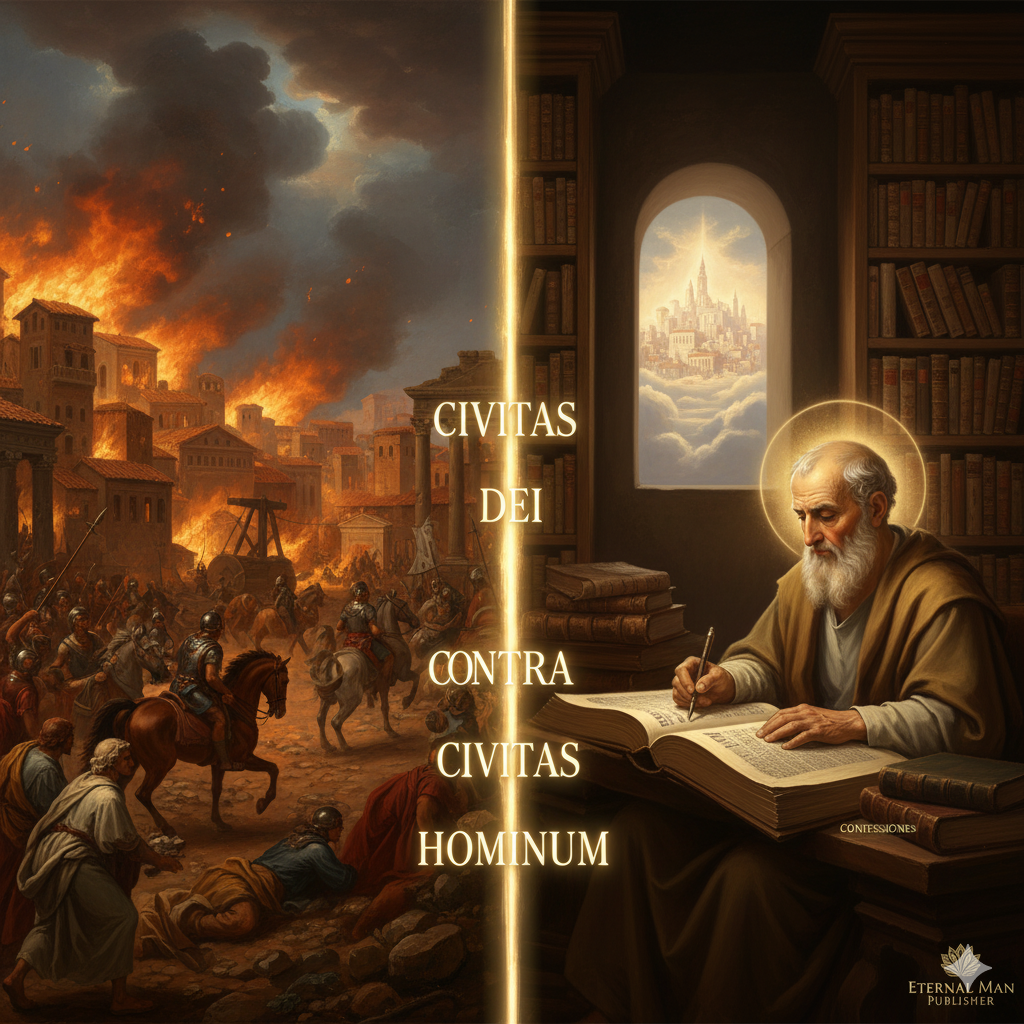Introduction: The World in Ruins
To many, St. Augustine is the author of the Confessions, the definitive introspection of the soul. But the Bishop of Hippo did not spend his entire life looking inward. He was a leader who lived and died during the greatest crisis of Western civilization: the collapse of the Roman Empire. If the Confessions show us how to live, his work The City of God teaches us how to hold onto hope when the world falls apart.
At Eternal Man Publisher, we recognize that the depth of the Confessions is inseparable from the historical turmoil that shaped Augustine's faith.
The End of History, According to Rome
When Augustine was born in the 4th century, Rome was still the beacon of civilization. However, in 410 A.D., the Visigoths sacked the city of Rome itself. This event was a seismic shock that dismantled centuries of confidence. How could the eternal empire fall?
Many pagans (and even some Christians) blamed Christianity. Augustine’s response was monumental: it took him 13 years to write The City of God (De Civitate Dei).
-
Two Cities: Augustine argues that there are two "cities": the Earthly City (the Roman Empire, which is temporal, fallible, and destined for ruin) and the City of God (the community of the faithful, which is eternal and unchanging).
-
Where to Place Hope: With this work, he essentially told the terrified citizens: "Do not place your hope in stone buildings or human armies. Place it in something that the Vandals cannot sack."
The Context of the Confessions
While the Confessions were written about a decade before the Sack of Rome, the despair and the search for something lasting that permeate the book reflect the fragility of the world Augustine inhabited.
-
Augustine’s quest for a secure and eternal spiritual home, chronicled in his autobiography, echoes society's desperate search for security.
-
By rejecting hedonism and secular ambition (Patricius's path, which was typically Roman), Augustine already foreshadowed the bankruptcy of a system based solely on power and pleasure.
The Legacy of a Bishop in Crisis
Augustine’s final years were consumed by administering his diocese amid total war. He witnessed the destruction of many churches and the terror of the population. Nevertheless, he continued to write, preach, and manage.
The lesson Augustine leaves behind is not one of panic, but of priority: the mind must always be focused on the eternal, even when the temporal is ablaze. His work, including the Confessions, is a legacy that survived the fall of an entire empire.
The chaos of Late Antiquity mirrors the uncertainty of our own times in many ways. Augustine offers the perspective we need.
Explore the thought that saved civilization from the darkness. Secure your copy of Confessions of St. Augustine from Eternal Man Publisher and discover how to find hope in a constantly changing world.
Click here and purchase: https://eternalmanpublisher.com/products/saint-augustine?variant=47621813862650
